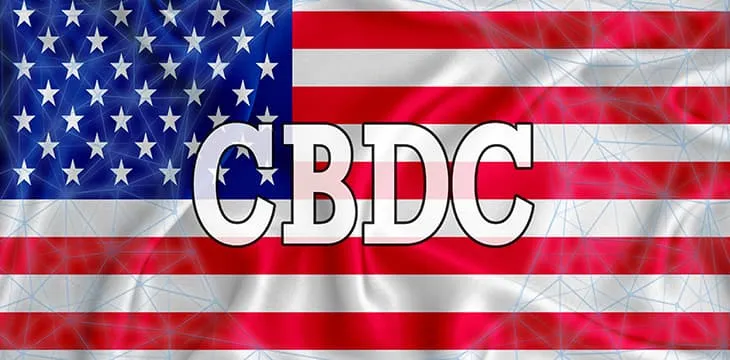|
Getting your Trinity Audio player ready...
|
U.S. Rep. Tom Emmer recently joined Paul H. Jossey and moderator Iain Murray from the Competitive Enterprise Institute (CEI) to discuss the risks of a central bank digital currency (CBDC) in America.
Rep. Emmer and Jossey expressed that the United States Federal Reserve should not issue a CBDC directly to U.S. residents, expressing fear that a state-backed digital currency issued directly to U.S. residents is more likely to be a tool used to invade privacy than it is a tool that creates a more efficient economy.
“I saw on LinkedIn today and I thought it was very apt that someone said that CBDC actually stands for Central Bank Digital’ Control’, not ‘Currency,'” Jossey said.
Both Rep. Emmer and Jossey explained how a CBDC creates new attack vectors that allow the government to oppress, monitor, and restrict the freedom of U.S. residents. If issued directly from the Fed to residents, a CBDC would directly show government officials how consumers were using money. If the government decided to program these digital dollars, it could give them a way to restrict consumer spending by preventing the CBDC from being used to purchase certain goods and services.
Rep. Emmer sees the potential threats of a CBDC and is trying to mitigate them via legislation.
“We introduced a bill that prohibits the federal reserve from issuing a central bank digital currency directly to individuals,” Rep. Emmer said.
“It’s more important than ever to ensure that the United States digital currency policy protects financial privacy, maintains the dollar’s dominance, and cultivates innovation. [There are] major concerns about the digital authoritarian model that China and others are putting forward. [For example,] cyber threats, American’s financial data should not be centralized and housed by our government, [centralized data becomes] very easy to attack,” he added.
The Feds approach
The main concern Rep. Emmer and Jossey had regarding a CBDC was privacy, but the Federal Reserve acknowledges that privacy is a problem that needs to be solved when creating a CBDC. In the Fed’s recently published CBDC report titled, “Money and Payments: The U.S. Dollar in the Age of Digital Transformation,” the Fed writes:
Federal Reserve policymakers and staff have studied CBDC closely for several years, guided by an understanding that any U.S. CBDC should, among other things…protect consumer privacy [and] protect against criminal activity.
In addition, the Federal Reserve recognizes the need for a CBDC to be ‘intermediated’ and not issued by the Fed directly to residents.
“The Federal Reserve Act does not authorize direct Federal Reserve accounts for individuals, and such accounts would represent a significant expansion of the Federal Reserve’s role in the financial system and the economy,” the Fed said.
“Under an intermediated model, the private sector would offer accounts or digital wallets to facilitate the management of CBDC holdings and payments. Potential intermediaries could include commercial banks and regulated nonbank financial service providers, and would operate in an open market for CBDC services,” it added.
The Federal Reserve admits that they are undecided when it comes to either embracing or shunning a CBDC in the United States but said they are actively looking into the benefits and drawbacks of CBDC. Rep. Emmer and Jossey highlight some of the drawbacks that the introduction of a CBDC can have in America, but the Federal Reserve is already aware of those issues.
To learn more about central bank digital currencies and some of the design decisions that need to be considered when creating and launching it, read nChain’s CBDC playbook.
Watch: US Congressman Patrick McHenry on Blockchain Policy Matters with Bitcoin Association’s Jimmy Nguyen

 07-12-2025
07-12-2025 





